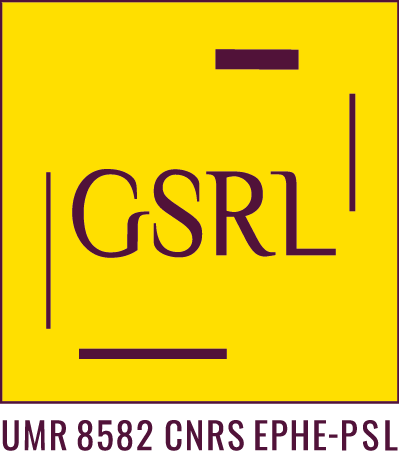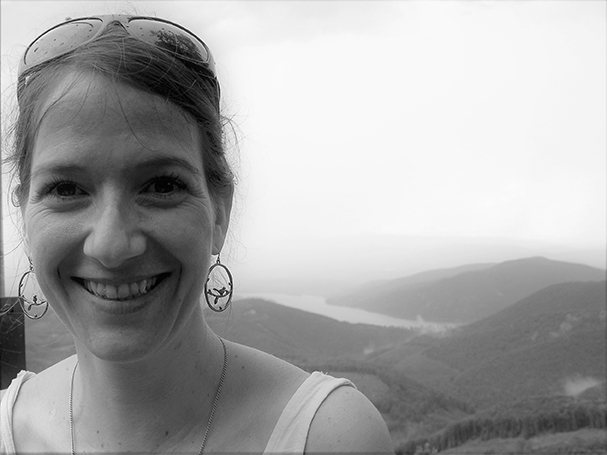Docteure associée
Post-doctorante au sein du LabEx HASTEC, rattachée au GSRL
Courriel : teisenhoffer.viola(a)gmail.com, viola.teisenhoffer(a)ephe.psl.eu
Adresse : Groupe Sociétés, Religions et Laïcités (GSRL/UMR 8582) – CNRS – Site d’Ivry-sur-Seine – 27, rue Paul Bert 94204 Ivry-sur-Seine Cedex
http://u-paris10.academia.edu/ViolaTeisenhoffer
Domaines de recherche / Fields of research
Religion et constructions identitaires / Religion and identity constructions
Dispositifs cérémoniels et expériences rituelles dans les pratiques spirituelles contemporaines / Rituals and ritual experiences in contemporary spirituality
Religions afro-brésiliennes (Brésil, France) / Afro-Brazilian religions (Brazil, France)
Néo-chamanisme et néopaganisme (Hongrie) / Neoshamanism and Neopaganism (Hungary)
Spiritualités contemporaines et politique / Contemporary spirituality and politics
Profil / Profile
Originaire de Budapest (Hongrie), Viola Teisenhoffer a été formée à l’Université Loránd Eötvös (ELTE), puis à l’Université Paris Nanterre où elle a obtenu le titre de docteur en ethnologie pour une thèse intitulée « Produire un soi spirituel : pratiques et expériences rituelles dans l’umbanda du Temple Guaracy de Paris », réalisée sous la direction de Michael Houseman.
Elle est actuellement post-doctorante au LabEx Hastec, rattachée au GSRL, où elle travaille sur un projet intitulé « Devenir un ‘vrai’ Magyar : experts, savoirs et rituels dans le renouveau païen contemporain en Hongrie », avec Virginie Vaté comme correspondante scientifique.
Spécialisée dans l’étude de nouvelles formes religieuses dénommées « spiritualités contemporaines » ou « New Age », ses recherches portent sur les constructions identitaires propres aux pratiques spirituelles inspirées de traditions religieuses ethniques, exotiques et/ou pré-chrétiennes.
Dans sa thèse, elle a cherché à mettre en lumière comment, au sein d’un groupe de culte transnational, des rituels issus de l’univers religieux afro-brésilien (l’umbanda et le candomblé) sont mis au service d’un parcours dit de « développement spirituel », composé de pratiques en apparence hétérogènes qui visent toutes le perfectionnement individuel. Une ethnographie détaillée des mécanismes rituels à l’œuvre dans l’élaboration d’un sens spirituel de soi a montré, d’une part, que ceux-ci sont relativement stables en dépit de la diversité des références culturelles mobilisées dans le cadre des pratiques du groupe étudié et au fil des parcours des praticiens individuels. D’autre part, la participation rituelle est apparue comme un moyen essentiel et efficace de construction identitaire, une véritable technique de soi dans ce processus.
Ses recherches postdoctorales reconduisent et renouvellent ces préoccupations en insérant l’étude de ces logiques religieuses dans un autre contexte et dans une réflexion plus vaste. Elle étudie notamment la mouvance du renouveau païen en Hongrie où elle a entamé une enquête ethnographique en 2015. Le projet qu’elle mène au sein du LabEx Hastec, interroge les modalités de construction et de représentation d’une identité nationale spiritualisée ostensiblement magyare. Il se penche notamment sur les formes d’engagement religieux et politique qui suscitent cette construction identitaire.
A native of Budapest (Hungary), Viola Teisenhoffer was trained at Loránd Eötvös University (ELTE), then at Paris Nanterre University where she obtained a PhD in ethnology for her thesis entitled “The making of a spiritual self : ritual practices and experiences in the Temple Guaracy de Paris”, completed under the supervision of Michael Houseman.
She is currently a post-doctoral research fellow at the LabEx History and Anthropology of Knowledge, Technologies and Beliefs (HASTEC) and affiliated to the Groupe Sociétés, Religions et Laïcités (GSRL) research unit in Paris where she works under the supervision of Virginie Vaté. Her project is entitled “Becoming a ‘real’ Magyar: experts, knowledge and rituals in contemporary Pagan renewal in Hungary”.
Specialized in the study of the “New Age” and “contemporary spirituality”, her main field of research concerns the identity constructions in practices inspired from ethnic, exotic and/or pre-Christian religious traditions.
In her PhD thesis she sought to shed light on how rituals from the Afro-Brazilian religious universe (Umbanda and Candomblé) are put into the service of what is called “spiritual development”, a path composed of seemingly heterogeneous practices aimed at self-enhancement, in a transnational worship group in France and in Brazil. The analysis of the ritual mechanisms at work in the production of a spiritual sense of self in this context showed, on the one hand, that these are relatively stable in spite of the diversity of the cultural references this particular group’s practices and its individual members draw on. On the other, ritual participation proved to be an essential and efficient means of identity construction, a true self-technique in this process.
Her postdoctoral research continues and renews the study of these religious dynamics in another context and in a wider perspective. Based on an ethnographic research initiated in 2015, she studies the construction and the representations of a conspicuously Magyar and spiritualized national identity in Pagan renewal in Hungary. Her project focuses on the forms of religious and political engagement which elicit this identity construction.
Télécharger le CV de Viola Teisenhoffer

